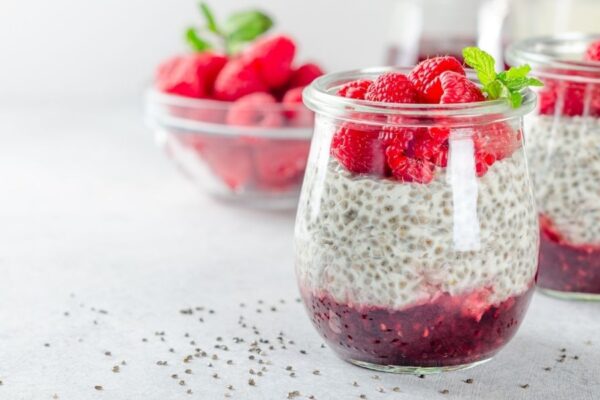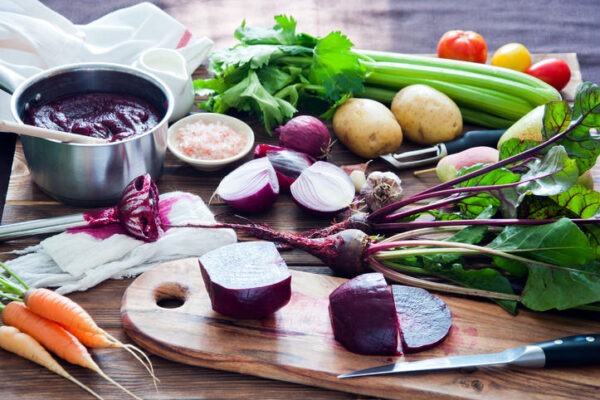Health Benefits Of Eggs, Deciphering Egg Labels and Egg Recipes
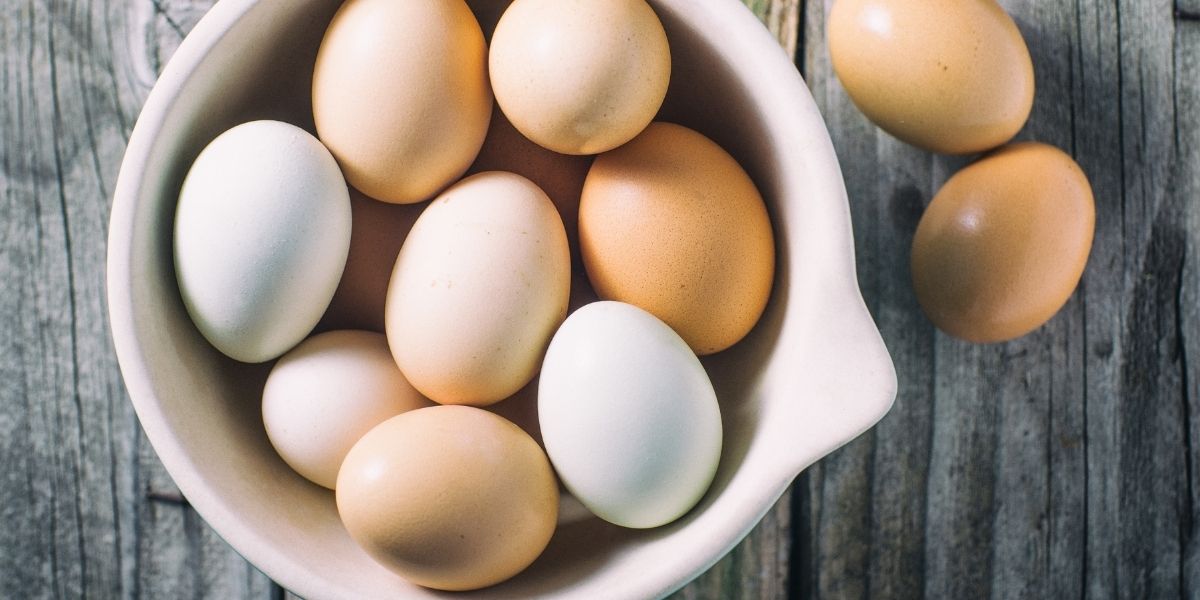
Eggs are a staple part of many cuisines around the world. While consumption varies from country to country, on average globally we eat about 161 eggs every year. Whether you use them in gluten-free baking, breakfast recipes, salads or just eat one as a snack, eggs are an incredibly nutrient-dense food. There are many health benefits of eggs because they contain a multitude of nutrients wrapped up into one small package, and they are inexpensive so they really give you a big bang for your buck!
When you walk the refrigerator aisle of the grocery store nowadays you’ll likely see multiple different egg choices. What do all those egg labels mean, how do you choose the healthiest egg option – and then how do you make delicious egg recipes at home in your kitchen?
This Culinary Nutrition Guide to Eggs aims to walk you through everything you need to know to choose, buy, store and eat eggs!
health Benefits of Eggs

Eggs are flush with nutrients that support our health – whether you’re looking to improve your mood, balance blood sugar levels, lower inflammation, aid immunity, get a better night’s sleep, and more.
Eggs are a rich source of:
- Protein, a nutrient that is essential for healing and repair, hormone and enzyme production, immune health and muscle growth
- Vitamin D, which helps to modulate our immune system, reduce our risk of infections, prevent autoimmune diseases, strengthen our bones and lower our chance of developing depression or seasonal affective disorder.
- Anti-inflammatory omega-3 fatty acids (learn more about fats here)
- Choline, a B vitamin that helps us produce the neurotransmitter acetylcholine, which is essential to the nervous system, brain health, memory and development. When our minds and nervous systems are healthy, we are better able to balance our stress hormones cope with stress.
- Riboflavin (Vitamin B2), which has been shown to help migraine sufferers and support post-partum health.
- Vitamin A to aid and buttress a strong immune system
- The antioxidants Vitamin E and selenium, which help to protect our cells from damage
- Vitamin B12 to help us synthesize our DNA, form red blood cells, improve energy levels and keep the nervous system healthy
- Inositol, another member of the B vitamin family that improves sleep.
With such a payload of nutrients, eggs really are an everyday, accessible superfood.
What About The Fat In Eggs, and Eggs and Cholesterol?

The low fat craze, which began in the 1950s, incited a deep fear of fat. Many of us spent years, or even decades, believing fat was incredibly harmful to our health, and that fat in foods should be reduced or eliminated. Research shows that this long-held view is incorrect – and that there wasn’t even much evidence to support low-fat diets in the first place.
Still, when it comes to eggs many of us are concerned about eating the whole egg and separate the yolk from the white. We wholeheartedly recommend eating the whole egg including the yolk. In fact, the yolk is where most of the nutrients are – like the nutritious fats, antioxidants, vitamins and minerals. Both the yolk and the white are rich in protein.
Eggs are a good source of cholesterol – and yes, cholesterol is good for us! We need cholesterol to help build cell membranes, produce hormones (especially the sex hormones) and Vitamin D. What’s more, we only consume about 20% of cholesterol through food. The rest our body makes itself.
Studies on eggs and cholesterol indicate that consuming eggs on a regular basis doesn’t negatively impact our cholesterol levels – in fact, it can even improve our cholesterol.
Interested in learning more about how you can research foods, their nutritional properties and how they benefit our health? Considering joining the Culinary Nutrition Expert Program, where we teach you how to get started with nutrition research and learn the ‘why’ behind food recommendations.
Types of Eggs: Deciphering Egg Labels
Despite their small size, eggs can have a lot of label claims on them. Which labels have meaning, and which are simply splashy marketing claims? Let’s decipher some of the terms on egg labels.
Note: Most eggs you’ll find at the average North American grocery store are chicken eggs; duck, quail, goose, turkey or other eggs aren’t as widely available.
Caged Eggs
These hens spend their lives in cages with very little space (usually about the size of a piece of paper), where they can’t move or practice their natural behaviours, nor do they have any outdoor access. Battery cages can cause chickens mental distress like boredom and frustration, plus it can affect their physical health – the lack of movement leads to bone and muscle weakness and often, osteoporosis. Unfortunately, most of the eggs in North America are caged eggs – 70% of hens in the United States and 61% in Canada are raised in cages.
Farmers are beginning to transition away from caged eggs (and in many areas legislation is being established to ban or limit it).
Cage-Free Eggs
Cage-free eggs are laid by hens who don’t live in cages. They have improved living conditions over caged eggs, though not all cage-free eggs will have a massive amount of space or spend time outside. Some examples of cage-free eggs include organic, pastured, free range and free run (more on that just below).
Free Run Eggs
Free run eggs come from hens who live indoors, but not in cages. They can move freely throughout the barn, and have spaces to practice natural behaviours like nesting and perching. They don’t, however, have outdoor access and free run doesn’t always equate to excellent animal welfare if barns are overcrowded.
Free Range Eggs

Free range chickens don’t live in cages, and like free run chickens they can openly roam their indoor spaces. They also have access to outdoor spaces – the amount of physical outdoor space and the time allotted outside varies depending on where you live.
Organic Eggs
Chickens who lay organic eggs have the same privileges as those who lay free range eggs, plus farmers only feed them organic feed. Organic egg farmers must follow the same standards and practices regulated for organic products in their state, province or country.
Pastured Eggs
Pastured eggs typically come from hens who’ve had an even larger area of outdoor space in which to roam, so they receive more sunshine and exercise. They also have the opportunity to forage for their own food in addition to their organic feed.
Omega-3 Enriched Eggs
These hens consume feed enriched with omega-3 fats from flax or fish oil, leading to eggs with more omega-3s in them. This study found that omega-3 enriched eggs improved insulin sensitivity and lowered blood pressure in patients with metabolic syndrome.
Pasteurized Eggs
Food processors pasteurize eggs in the shells using gentle heat, without cooking them, to destroy any bacteria or food-borne pathogens. You can also find liquid pasteurized eggs.
Third-Party Humane Certifications
Some egg cartons may have certifications from independent or third-party organizations, such as the local SPCA or Humane Society. Many of these certifications have additional standards for space, feed and animal welfare.
Egg Grades
Here in Canada, we have Grade A, Grade B and Grade C eggs. In the United States, there are Grade AA, Grade A and Grade B eggs. Egg graders shine light under the eggs and inspect a host of factors including the size and shape of the yolk, if there are any blood/protein strands, if the shell has any hairline cracks, and more. Most Grade A or Grade AA eggs are those picture-perfect eggs you’ll find in the grocery store.
Egg Colour: Does It Matter?
Eggshells are a variety of colours – different shades of white and cream, pink, blue, green and various shades of brown. Eggshell colours are dependent on a hen’s breed and genetics, and have nothing to do with nutrition. Brown eggs aren’t healthier than any other kind!
What About Egg Sizes?
Egg sizes are pee wee, small, medium, large, extra large and jumbo. These sizes are classified by weight. Most standard recipes call for large eggs. The larger the egg, the more liquid it has – so that is something to consider depending on the recipe you’re making. Egg sizes will matter more if you’re baking or whipping up a recipe where eggs are integral to its structure or flavour (for example a custard, meringue or soufflé.)
what Are the Healthiest Eggs to Buy?
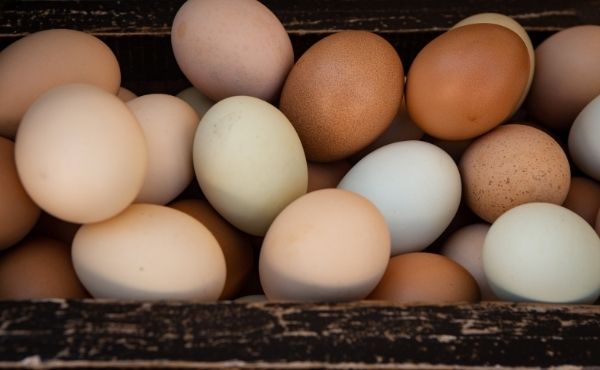
The eggs you choose to buy depend on a variety of factors. Some considerations include:
Nutrition and Health Benefits of Eggs
How a hen is raised affects the nutrition levels of her eggs. As with other animal products, you eat what the animal you eat has consumed. With eggs, a hen’s food, exercise and outdoor access all impact an egg’s nutritional value. Evidence shows that eggs that are organic and/or free range, when compared to the conventional or caged counterparts, contain more:
- Vitamin A
- Vitamin E
- Vitamin D
- Protein
- Omega 3 fats (and they have a better ratio of Omega 6 to Omega 3s, a factor that prevents and reduces inflammation)
Animal Welfare
Each and every one one of us are on our own health journeys. For some, that journey includes animal products. When we consume animals, we aim to purchase ones who have lived a strong, healthy and vibrant life in their natural environment.
Source/Location
When purchasing eggs, try checking out local farmers or eggs that have been laid closer to where you live. Local, seasonal foods have a lower environmental impact as they are traveling fewer distances from farm to plate, plus you can support local businesses.
Some farmers invite customers to their farm for a tour, so you can see how animals are kept and raised. Organic or specialty certifications can be expensive; and a local farmer could be producing excellent eggs following best practices and simply can’t afford the certification.
There are also districts and cities around the world that allow you to keep backyard chickens. If you opt for this route, please consider these animals as a long term commitment beyond their peak egg-laying years. Basically, having a backyard chicken is welcoming a new family pet.
Cost
Organic and pastured eggs are more expensive than free run, free range and caged eggs. With food costs on the rise, the cost of eggs and your food budget is a definite consideration.
All things considered, whenever possible we aim to choose organic or pastured eggs. The nutrition and animal welfare benefits make them worth the extra cost.
How to Store Eggs
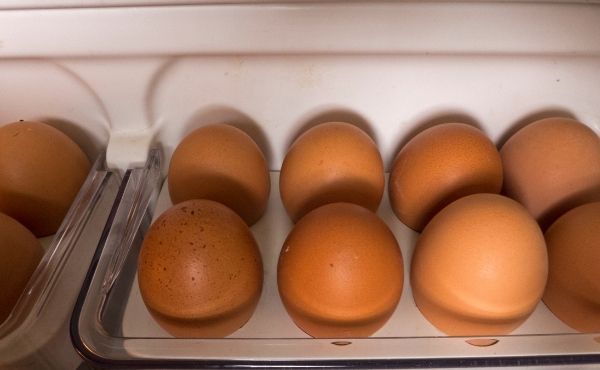
To refrigerate or not to refrigerate? The answer to this depends on where you are.
In North America, yes – eggs need to be in the fridge, best stored in the body and not the doors (more on the best ways to store food so it lasts here). Eggs can be contaminated with salmonella, both outside and inside. To reduce risk, producers wash their eggs and then ship them refrigerated, where they are sold in the refrigerated section of the grocery store.
Once an egg is cold, keeping it at room temperature leads to condensation that may encourage bacterial growth. Taking eggs home and storing them in the fridge helps to prevent food poisoning. It’s also recommended to store them in the carton to protect them from absorbing odors from other things in the fridge.
In some countries farmers vaccinate hens against salmonella, and that’s why you’ll see eggs unrefrigerated. If that’s the case where you live, you can choose to leave eggs at room temperature or pop them in the fridge – but once they’re refrigerated, they need to stay that way.
The best before date on an egg refers to how long it will maintain its ‘Grade A’ status. After that, an egg should still be safe to eat but is better to use in gluten-free baking, or to eat scrambled or hard boiled.
Learn more about best before dates and food safety here.
Healthiest Ways to Cook Eggs
An egg loses nutrients when cooked at very high temperatures, or when overcooked for extended periods of time. High-heat frying (especially in unstable oils) is not one of the healthiest ways to cook eggs. To preserve the health benefits of eggs, here are some of our recommendations on how to cook them:
- Poaching
- Soft Boiling
- Hard Boiling
- Low and slow scrambling
- Low-heat frying
Egg Recipes to try
Looking for some eggs-piration? These are some egg recipes to try!
Breakfast Frittata
Breakfast Frittata by Christine Bullajian (*Culinary Nutrition Expert)
A simple egg recipe you can customize with your favourite veggies.
Grated Egg Avocado Toast
Grated Egg Avocado Toast by Hungry Huy
Have you seen the latest TikTok recipe trend? Amp up your avocado toast with extra protein by grating up a hard-boiled egg over it.
Dairy-Free Maple Cream Custard
Dairy-Free Maple Cream Custard by Meghan Telpner (*ACN Founder + Director)
This delicious dessert or snack is packed with egg yolks – the most nutritious part of the egg.
Spinach, Mushroom and Pepper Egg Muffins

Spinach, Mushroom and Pepper Egg Muffins by Melissa Torio (*Culinary Nutrition Expert)
An egg recipe that you can make ahead of time, freeze and then reheat as needed. That’s what we call fast food!
Fluffy Korean Steamed Eggs (Gyeran Jjim Recipe)
Fluffy Korean Steamed Eggs (Gyeran Jjim Recipe) by What Great Grandma Ate
A soft and velvety egg recipe that basically melts in your mouth.
Easy Shakshuka Recipe
Easy Shakshuka Recipe by The Mediterranean Dish
A one-pot meal (which we love!) that you can enjoy for any meal of the day.
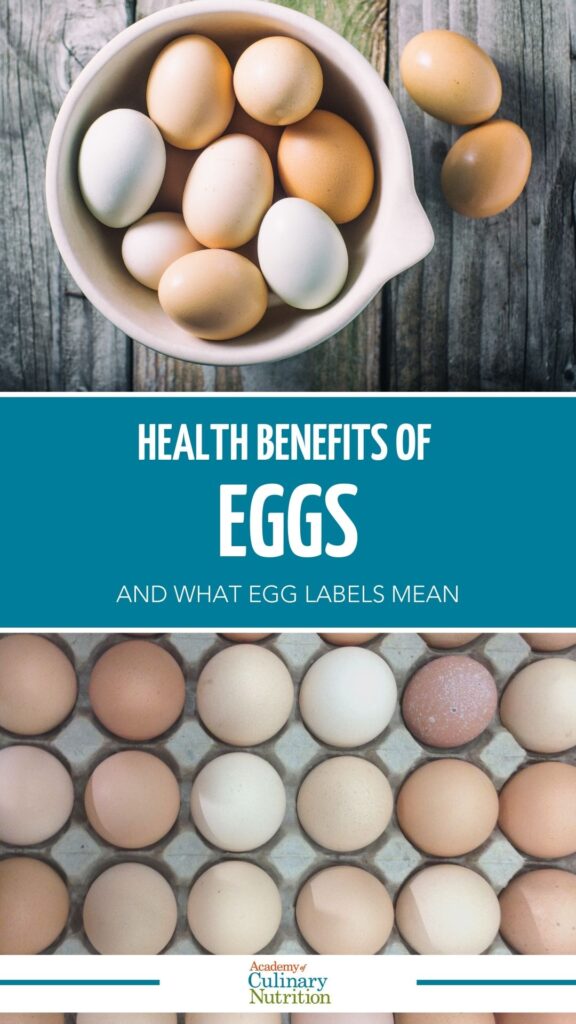
Free Resource Library
Enjoy more than 40 downloadable guides, recipes, and resources.























